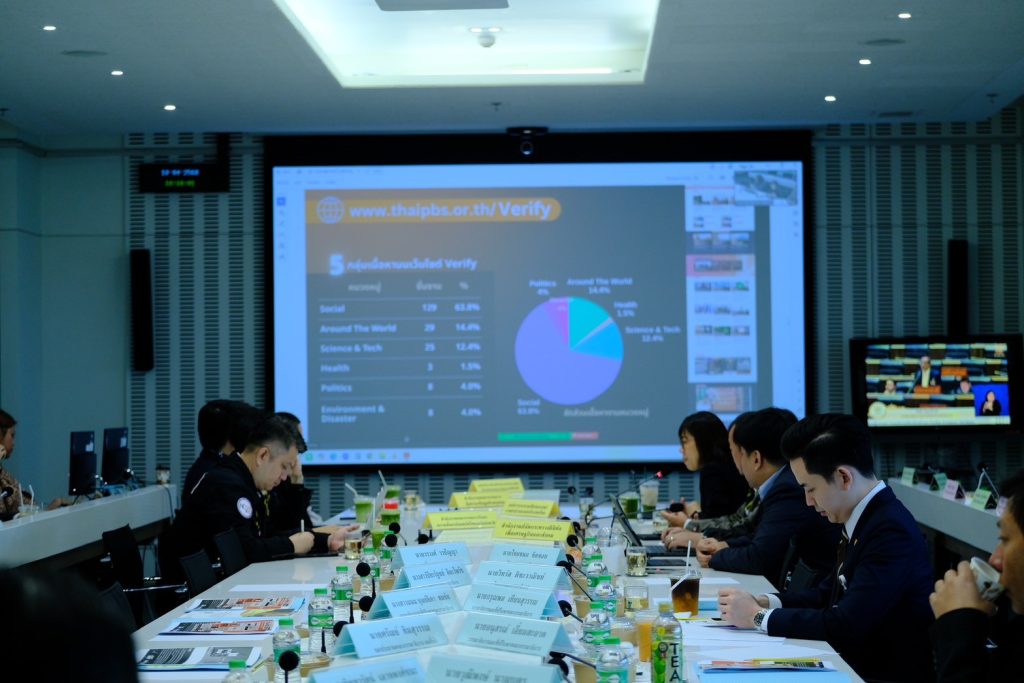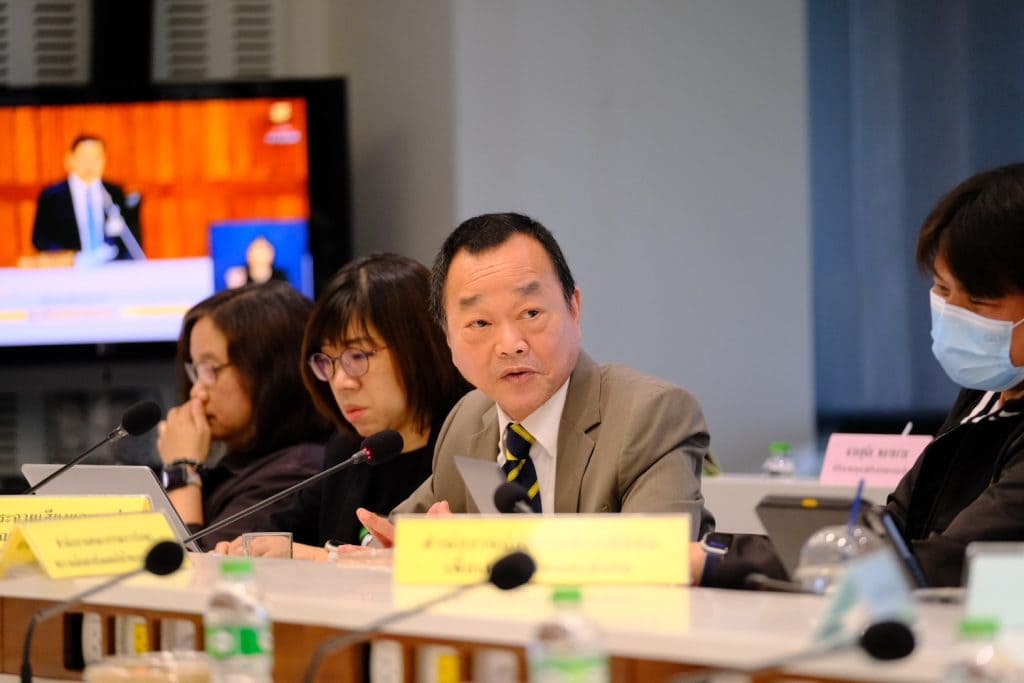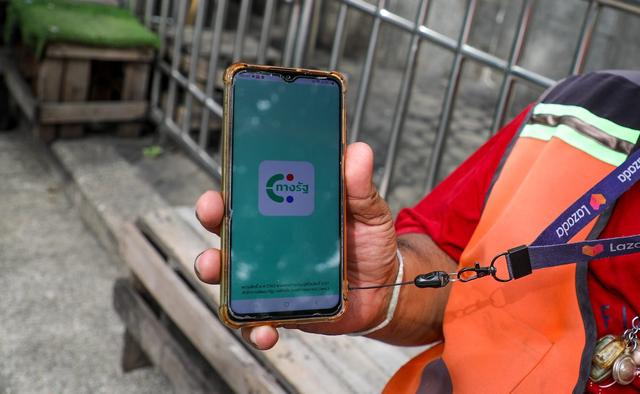On April 10, 2025, the House Committee on Communications, Telecommunications, and Digital for Economy and Society held a meeting to consider preventive and corrective measures against the increasingly complex and widespread issue of fake news. The objective is to enhance communication mechanisms in the digital age and foster cooperation among relevant agencies to effectively and systematically address the spread of misinformation.

The meeting was joined by five key agencies specializing in technology and cybersecurity, who shared information, roles, and missions related to fake news verification. These agencies included:
- Technology Crime Suppression Division (TCSD)
- Office of the Personal Data Protection Committee (PDPC)
- National Cyber Security Agency (NCSA)
- Anti-Fake News Center, Ministry of Digital Economy and Society (MDES)
- Thai PBS Verify
The fact-checking agency under the Thai Public Broadcasting Service (Thai PBS), led by Mr. Anupong Chairit, Deputy Director-General for Media Technology, and Ms. Kanokporn Prasitphon, Director of the Digital Media Department, participated in the meeting as representatives of the organization.

Showcasing the role of Thai PBS Verify on a national collaboration platform
Thai PBS Verify presented its mission to fact-check information disseminated through public media such as Thai PBS. The verification process relies on evidence, data, and technological tools to analyze, verify, and publish fact-checking results to the public, aiming to prevent the spread of misinformation. The verified results are shared with the public in a transparent, responsible, and easily accessible manner.

Key issues raised: reflecting concerns and proposals for improvement
The meeting served as a platform for open discussion, allowing participants to ask questions and exchange diverse viewpoints. The Committee highlighted several key issues, including:
- Facilitating public participation:
Suggesting that there should be an easy and quick channel for citizens to submit questions or report suspected fake news for verification.
- Establishing criteria to differentiate between fake news and misleading information:
Discussing clear methods for distinguishing between the two types of content.
- Defining the role of other media organizations involved in fact-checking:
Exploring how they operate similarly to Thai PBS and how collaboration among them can be strengthened.
- Sources of information used for verification:
Inquiries were raised about how news items are selected and what criteria determine which stories should be verified.
- Limitations of technological tools:
Concerns were discussed regarding tools such as Google Earth or image analysis programs that may be outdated, along with approaches to ensure data accuracy in such cases.
- Data-sharing systems:
Exploring models or mechanisms for sharing fake news information among different agencies and organizations.
- Managing fake accounts — addressing the sources of fake news and questioning whether sufficient tools or measures exist to tackle them.
- Fact-checking political news — a topic that drew significant attention, with recommendations for public media such as Thai PBS to collaborate closely with other media organizations to strengthen verification efforts.
- Collaboration among fact-checking agencies — discussing how information, experiences, and tools are shared across organizations to enhance collective efficiency.
- The use of OSINT (Open Source Intelligence) technology — discussing the scope and effectiveness of using such tools to investigate and verify fake news.
- Legal action against those who spread fake news — proposing that case outcomes be made public to promote accountability within society.
- Strategies for communicating fact-checking content — emphasizing the need to present verified information in engaging and easily understandable language, avoiding overly technical or academic terms to better reach a wider audience.

A significant step toward concrete collaboration. Strengthening information literacy and building resilience against misinformation.
This meeting marks another significant step in advancing integrated policies to address fake news. The collaboration between cybersecurity agencies, legal organizations, personal data protection authorities, and public media such as Thai PBS serves as a key mechanism to strengthen Thai society’s ability to confront misinformation with mindfulness, comprehensiveness, and sustainability. It aims to produce tangible outcomes and foster a society with lasting resilience against misinformation in the future.









